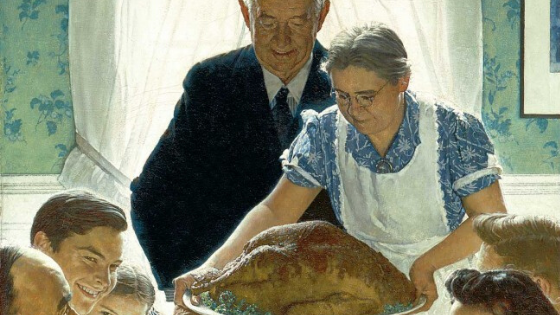There’s a certain way we do things. And in this sense, we’re all traditionalists – we all have certain customs we hold on to. But while traditions are common and helpful, they must also be questioned.
Traditions come in many shapes and sizes – from always having turkey and cranberry sauce at Thanksgiving to the certain way we expect birthdays to be celebrated every year. Traditions provide structure and rhythms to our life. They give us something to look forward to and to rest in. They also help us to look back and remember our story as we pass on important truths to the next generation.
For example, as God’s people were being delivered out of Egyptian slavery, they were given instructions for the first Passover. And as a yearly celebration, there was an expectation that their children would eventually ask the meaning of the ceremony. The older generation would then share what God had done for them. The next generation was not expected to merely continue the tradition without question. In fact, questioning was part of how the significance was passed on. And the same is true for us today.
Why do we do what we do? Are we simply following blindly what has always been done? Or can we give a meaningful reason for the traditions we hold?
The reason does not have to be particularly transcendent or universal, but it does need to be meaningful. For instance, granddad always liked pecan pie, so we keep it on the holiday menu to remember him.
Traditions are clues into our story and must be questioned in order to discover the truths they contain. It’s good to question traditions. And to be sure, any tradition that cannot be questioned has already lost much of its significance.
What has been left untold in your story because a tradition was never questioned?
Question reverently, but continue to ask – What does it mean to hold to this tradition?
Photo by Norman Rockwell – “Freedom from Want” [Public domain]



Thank you for your encouragement!